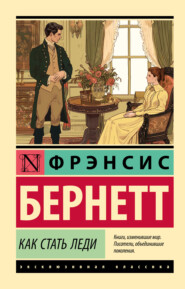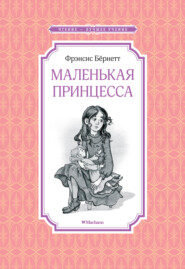По всем вопросам обращайтесь на: info@litportal.ru
(©) 2003-2024.
✖
Theo: A Sprightly Love Story
Год написания книги
2017
Настройки чтения
Размер шрифта
Высота строк
Поля
"I have not had time yet to decide how I like Lady Throckmorton," she said. "She is very kind to me, and asks a good many questions. I think I am a little afraid of her; but perhaps that is because I do not know her very well. One thing I am sure of, she doesn't like either Sir Dugald or his dog very much. We had a caller last night – a gentleman. A Mr. Denis Oglethorpe, who is a very great favorite of Lady Throckmorton. He is very handsome, indeed. I never saw any one at all like him before – any one half so handsome and self-possessed. I liked him very much because he talked so well, and was so witty. I had on the gray satin when he came, and the train hung beautifully. I am glad we made it with a train, Pamela. I think I shall wear the purple cloth to-night, as Lady Throckmorton said that perhaps he might drop in again, and he knows so many grand people, that I should like to look nice. There seems to be a queer sort of friendship between aunt and himself, though somehow I fancied he did not care much about what she said to him. He is engaged to be married to a very accomplished young lady, and has been for several years; but they were both too poor to be married until now. The young lady's name is Priscilla Gower; and Lady Throckmorton does not like her, which seems very strange to me. She is as poor as we are, I should imagine, for she gives French and Latin lessons, and lives in a shabby house. But I don't think that is the reason Lady Throckmorton does not like her. I believe it is because she thinks she is not suited to Mr. Oglethorpe. I hope she is mistaken, for Mr. Oglethorpe is very nice indeed, and very clever. He is a journalist, and has written a book of beautiful poetry. I found the volume this morning, and have been reading it all day. I think it is lovely; but Lady Throckmorton says he wrote it when he was very young, and makes fun of it now. I don't think he ought to, I am sure. I shall buy a copy before I return, and bring it home to show you. I will write to mamma in a day or so. With kisses and love, and a hundred thanks again for the dresses, I remain, my dearest Pamela, your loving and grateful,
"Theo."
CHAPTER III
THE MEETING
But Denis Oglethorpe did not appear again for several days. Perhaps business detained him; perhaps he went oftener to see Priscilla. At any rate, he did not call again until the end of the week.
Lady Throckmorton was in her private room when he came, and as he made his entrance with as little ceremony as usual, he ran in upon Theodora. Now, to tell the truth, he had, until this moment, forgotten all about that young person's very existence. He saw so many pretty girls in a day's round, and he was so often too busy to notice half of them – though he was an admirer of pretty girls – that it was nothing new to see one and forget her, until chance threw them together again. Of course, he had noticed Theodora North that first night. How could a man help noticing her? And the something beautifully over-awed and bashfully curious in her lovely, uncommon eyes, had half amused him. And yet, until this moment, he had forgotten her, with the assistance of proofs, and printers, and Priscilla.
But when, after running lightly up the stair-case, he opened the drawing-room door, and saw a tall, lovely figure in a closely-fitting dress of purple cloth, bending over Sabre, and stroking his huge, tawny head with her supple little tender hand, he remembered.
"Ah, yes!" he exclaimed, in an admiring aside. "To be sure; I had forgotten Theodora."
But Theodora had not forgotten him. The moment she saw him she stood up blushing, and with a light in her eyes. It was odd how un-English she looked, and yet how thoroughly English she was in that delicious, uncomfortable trick of blushing vividly upon all occasions. She was quite unconscious of the fact that the purple cloth was so becoming, and that its sweep of straight, heavy folds made her as stately as some Rajah's dark-eyed daughter. She did not feel stately at all; she only felt somewhat confused, and rather glad that Mr. Denis Oglethorpe had surprised her by coming again. How Mr. Denis Oglethorpe would have smiled if he had known what an innocent commotion his simple presence created!
"Lady Throckmorton is up-stairs reading," she explained. "I will go and tell her you are here." There were no bells in the house at Downport, and no servants to answer if any one had rang one, and, very naturally, Theo forgot she was not at Downport.
"Excuse me. No," said Mr. Denis Oglethorpe. "I would not disturb her on any account; and, besides, I know she will be down directly. She never reads late in the evening. This is a very handsome dog, Miss North."
"Very handsome, indeed," was Theo's reply. "Come here, Sabre."
Sabre stalked majestically to her side, and laid his head upon her knee. Theo stroked him softly, raising her eyes quite seriously to Mr. Oglethorpe's face.
"He reminds me of Sir Dugald himself," she said.
Mr. Denis Oglethorpe smiled faintly. He was not very fond of Sir Dugald, and the perfect gravity and naivete with which this pretty, unsophisticated young sultana had made her comment had amounted to a very excellent joke.
"Does he?" he returned, as quietly as possible, and then his glance meeting Theo's, she broke into a little burst of horror-stricken self-reproach.
"Oh, dear!" she exclaimed. "I oughtn't to have said that, ought I? I forgot how rude it would sound; but, indeed, I only meant that Sabre was so slow and heavy, and – and so indifferent to people, somehow. I don't think he cares about being liked at all."
She was so abashed at her blunder, that she looked absolutely imploring, and Mr. Denis Oglethorpe smiled again. He felt inclined to make friends with Theodora.
"There is a little girl staying at Lady Throckmorton's," he had said to Priscilla. "A relative of hers. A pretty creature, too, Priscilla, for a bread-and-butter Miss."
But just at this moment, he thought better of the matter. What tender, speechful eyes she had! He was aroused to a recognition of their beauty all at once. What contour there was in the turn of arm and shoulder under the close-fitting purple cloth! He was artistically thankful that there was no other trimming of the straight bodice than the line of buttons that descended from the full white ruff of swansdown at her throat, to her delicate, trim waist. Her unconscious stateliness of girlish form, and the conscious shyness of her manner, were the loveliest inconsistency in the world.
"Oh, I shall not tell Sir Dugald," he said to her, good-humoredly. "Besides, I think the comparison an excellent one. I don't know anything in London so like Sir Dugald as Sir Dugald's dog."
Theodora stroked Sabre, apologetically, but could scarcely find courage to speak. She had stood somewhat in awe of Mr. Denis Oglethorpe, even at first, and her discomfort was rapidly increasing. He must think her dreadfully stupid, though he was good-humored enough to make light of her silly speech. Certainly Priscilla never made such a silly speech in her life; but then, how could one teach French and Latin, and be anything but ponderously discreet?
Mr. Denis Oglethorpe was not thinking of Priscilla's wisdom, however; he was thinking of Theodora North; he was thinking that he must have been very blind not to have seen before that his friend's niece was a beauty of the first water, young as she was. But he had been tired and fagged out, he remembered, on the first occasion of their meeting – too tired to think of anything but his appointment at Broome street, and Priscilla's Greek grammar. And now in recognizing what he had before passed by, he was quite glad to find the girl so young and inexperienced – so modest, in a sweet way. It was easy, as well as proper enough, to talk to her unceremoniously without the trouble of being diffuse and complimentary. So he made himself agreeable, and Theodora listened until she quite forgot Sir Dugald, and only remembered Sabre, because his big heavy head was on her knee, and she was stroking it.
"And you were never in London before?" he said at length.
"No, sir," Theo answered. "This is the first time. I was never even out of Downport before."
"Then we must take you to see the lions," he said, "if Lady Throckmorton will let us, Miss Theodora. I wonder if she would let us? If she would, I have a lady friend who knows them all, from the grisliest, downward, and I know she would like to help me to exhibit them to you. How should you like that?"
"Better than anything in the world," glowing with delighted surprise. "If it wouldn't be too much trouble," she added, quite apologetically.
Mr. Denis Oglethorpe smiled.
"It would be simply delightful," he said. "I should like it better than anything in the world, too. We will appeal to Lady Throckmorton."
"When Priscilla was in London – " Theodora was beginning a minute later, when the handsome face changed suddenly as her companion turned upon her in evident surprise.
"Priscilla?" he repeated, after her.
"How stupid I am!" she ejaculated, distressedly. "I meant to say Pamela. My eldest sister's name is Pamela, and – and – "
"And you said Priscilla by mistake," interposed Oglethorpe, with a sudden accession of gravity. "Priscilla is a little like Pamela."
It needed nothing more than this simple slip of Theodora North's tongue to assure him that Lady Throckmorton had been telling her the story of his engagement to Miss Gower, and, as might be anticipated, he was not as devoutly grateful to her ladyship as he might have been. He was careless to a fault in some things, and punctilious to a fault in others; and he was very punctilious about Priscilla Gower. He was not an ardent lover, but he was a conscientiously honorable one, and, apart from his respect for his betrothed, he was very impatient of interference with his affairs; and my lady was not chary of interfering when the fancy seized her. It roused his pride to think how liberally he must have been discussed, and, consequently, when Lady Throckmorton joined them, he was not in the most amiable of moods. But he managed to end his conversation with Theo unconstrainedly enough. He even gained her ladyship's consent to their plan. It was curiously plain how they both appeared to agree in thinking her a child, and treating her as one. Not that Theo cared about that. She had been so used to Pamela, that she would have felt half afraid of being treated with any greater ceremony; but still she could clearly understand that Mr. Oglethorpe did not speak to her as he would have spoken to Miss Gower. But free from any touch of light gallantry as his manner toward the girl was, Denis Oglethorpe did not forget her this night. On the contrary, he remembered her very distinctly, and had in his mind a very exact mental representation of her purple robe, soft white ruff, and all, as he buttoned up his paletot over his chest in walking homeward. But he thought of her carelessly and honestly enough, as a beautiful young creature years behind him in experience, and utterly beyond him in all possibility of any sentimental fancy.
The friendship existing between Lady Throckmorton and this young man was a queer, inconsistent sentiment enough, and yet was a friendship, and a mature one. The two had encountered each other some years ago, when Denis had been by no means in his palmiest days. In fact, my lady had picked him up when he stood in sore need of friends, and Oglethorpe never forgot a favor. He never forgot to be grateful to Lady Throckmorton; and so, despite the wide difference between their respective ages and positions, their mutual liking had ripened into a familiarity of relationship which made them more like elder sister and younger brother than anything else. Oglethorpe, junior, was pretty much what Oglethorpe, senior, had been, and notwithstanding her practical views, Lady Throckmorton liked him none the worse for it. She petted and patronized him, questioned and advised him, and if he did not please her, rated him roundly without the slightest compunction. In fact, she was a woman of caprices even at sixty-five, and Denis Oglethorpe was one of her caprices.
And, in like manner, Theodora North became another of them. Finding her tractable, she became quite fond of her, in her own way, and was at least generous to lavishness in her treatment of her.
"You are very handsome, indeed, Theodora," she said to her a few days after her arrival. "Of course, you know that – ten times handsomer than ever poor Pamela could have been. Your figure is perfect, and you have eyes like a Syrian, instead of a commonplace English woman. I am going to give you a rose-pink satin dress. Rose-pink is just your shade, and some day, when we go out together, I will lend you some of my diamonds."
After this whimsical manner she lavished presents upon her whenever she had a new fancy. In truth, her generosity was constitutional, and she had been generous enough toward Pamela, but she had never been so extravagant as she was with Theodora. Theodora was an actual beauty, of an uncommon type, in the face of her ignorance of manners and customs. Pamela had never, at her best, been more than a delicately pretty girl.
In the meantime, Denis Oglethorpe made friendly calls as usual, and always meeting Theodora, found her very pleasant to talk to and look at. He found out her enthusiastic admiration for the poetic effusions of his youth, and in consideration thereof, good-humoredly presented her with a copy of the volume, with some very witty verses written on the fly-leaf in a flourishing hand. It was worth while to amuse Theodora, she was so pretty and unassuming in her delight at his carelessly-amiable efforts for her entertainment. She was only a mere child after all at sixteen, with Downport in the background; so he felt quite honestly at ease in being attentive to her girlish requirements. Better that he should amuse her than that she should be left to the mercy of men who would perhaps have the execrable taste to spoil her pretty childish ways with flattery.
"Don't let all these fine people and fine speeches turn your head, Theodora," he would say, in a tone that might either have been jest or earnest. "They spoiled me in my infancy, and my unfortunate experience causes me to warn you."
But whether he jested or not, Theo was always inclined to listen to him with some degree of serious belief. She took his advice when it was proffered, and regarded his wisdom as the wisdom of an oracle. Who should know better than he what was right? His indifference to the rule of opinion could only be the result of conscious perfection, and his careless satires were to her the most brilliant of witticisms. He paid her his first compliment the night the rose-colored satin-dress came home.
They were going to see Faust together with Lady Throckmorton, and she had finished dressing early, and came down to the drawing-room, and there Denis found her when he came up-stairs – the thick, lustrous folds of satin billowing upon the carpet around her feet, something white, and soft, and heavy wrapped about her.
He was conscious of a faint shock of delight on first beholding her. He had just left Priscilla, pale and heavy-eyed, in dun-colored merino, poring over a Greek dictionary, and the sudden entering the bright room, and finding himself facing Theodora North in rose-colored satin, was a little like electricity.
"Oh! it's Theodora, is it?" he said, slowly, when he recovered himself. "Thank you, Theodora."
"What for?" asked Theo, blushing.
"For the rose-colored satin," he returned, complacently. "It is so very becoming. You look like a sultana, my dear Theodora."
Theo looked up at him for a second, and then looked down. Much as she admired Mr. Denis Oglethorpe, she never quite comprehended him. He had such an eccentric fashion of being almost curt sometimes. She had seen him actually give a faint start when he entered, and she had not understood that, and now he had paid her a compliment, but with so much of something puzzling hidden in his quiet-sounding voice, that she did not understand that either – and he saw she did not.
"I have been making a fine speech to Theodora," he said to Lady Throckmorton, when she came in. "And she does not comprehend it in the least."
It was somewhat singular, Theo thought, that he should be so silent after this, for he was silent. He even seemed absent-minded, for some reason or other. He did not talk to her as much as usual, and she was quite sure he paid very little attention to Faust.
But during the final act she found that he was not looking at the stage at all; but was sitting in the shadow of the box-curtain watching herself. She had been deeply interested in Marguerite a minute before, and, in her heart-touched pleasure, had leant upon the edge of the box, her whole face thrilled with excitement. But the steady gaze magnetized her, and drew her eyes round to the shadowy corner where Denis sat; and she positively turned with just such a start as he himself had given when Theodora North, in rose-colored satin, burst upon him, in such vivid, glowing contrast to Priscilla Gower, in dun merino.

















